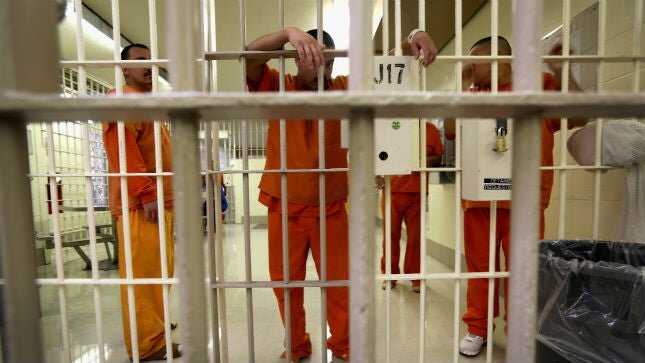
PRACTITIONER BLOG
Read our analyses of developments in Impact Litigation and stay current on class action law

Impact Fund & AMICI Urge Sixth Circuit to Affirm Class Certification in Discriminatory Water Billing Case
In October 2024, the Impact Fund and fellow amici Bet Tzedek Legal Services, Centro Legal de la Raza, Legal Aid at Work, and Public Counsel, filed a brief urging the Sixth Circuit to uphold the federal district court’s certification of a class of Black Cleveland residents who brought a lawsuit alleging discriminatory water billing practices by the City.

Ninth Circuit Panel Decertifies Class of Janitorial & Maintenance Workers: Impact Fund & Amici Urge Rehearing
A certified class of janitorial and maintenance workers survived two motions for decertification, successfully proved employer wrongdoing at summary judgment, and received significant damages in a jury bellwether trial before seeing their efforts undone by the Ninth Circuit. The recent panel opinion in Bowerman v. Field Asset Services, Inc., 39 F.4th 652, 661-63 (9th Cir. 2022), reversed certification after over seven years of litigation as a certified class. In doing so, the panel blatantly ignored the district judge’s repeated conclusion that the case was best managed as a class action.

Eastern District of New York Grants Class Certification to Incarcerated People Who Faced Inhumane Conditions
Plaintiffs also alleged that MDC staff failed to provide them adequate food and clothing and deprived them of access to hot water for cleaning, bathing, and laundry. Plaintiffs were forced to wash themselves in their cell sinks with cold water or forego washing for fear of getting sick. One resident suffering from ulcerative colitis had bloody bedding that had not been changed because of the lack of laundry services. Other incarcerated people with chronic medical conditions did not receive their medication and were unable to receive medical treatment. Class members also reported not being able to use their CPAP machines, not having access to mental health staff, and even enduring dirty bandages that had not been changed in weeks.

Impact Fund and Amici: Ninth Circuit’s New “De Minimis” Standard for Predominance Is Wrong and Disadvantages Workers
Our brief argues that the panel’s decision is inconsistent with decades of Supreme Court and Ninth Circuit precedent regarding class certification and trials challenging employment discrimination and other workplace violations, such as wage theft. To require plaintiffs to demonstrate no more than a “de minimis” number of uninjured class members at the class certification stage forces district courts to engage in a full-blown inquiry into the merits of the case, an inquiry which the Supreme Court and the Ninth Circuit have repeatedly stated courts are expressly forbidden to undertake at that stage.

Answering Question Left Open by SCOTUS, D.C. and Seventh Circuits Side With Plaintiffs on Specific Personal Jurisdiction in Class Actions
In quick succession last week, the D.C. and Seventh Circuits handed down two decisions favorable to class action plaintiffs on specific personal jurisdiction in federal court. So, good news for plaintiffs today, but these cases are not the last we will hear on this subject.
Impact Fund and allies file amicus brief in support of rehearing in Ahearn v. Hyundai.
As explained in the amicus brief, that decision was an unwarranted departure from well-established precedent that differences between state consumer protection laws do not defeat predominance of common questions as to the defendant’s uniform misconduct. This precedent has facilitated nationwide class action settlements both within the Ninth Circuit and sister circuits for years. As the Impact Fund and their fellow amici explained, “Litigation is costly and time-consuming for plaintiffs, defendants, and the court system alike,” which has led to a “strong judicial policy” in favor of settlements. Contravening this policy, the divided majority panel “added requirements and shifted burdens” that would unfortunately operate to prevent settlement of nationwide claims.
Ninth Circuit: "Fortuitous Non-Injury" Does Not Defeat Class Certification
The recent appellate decision affirming class certification, Ruiz Torres v. Mercer Canyons Inc., No. 15-35615 (9th Cir. Aug. 31, 2016), written by Judge Milan Smith, skillfully addresses the issues of informational injury, non-injured class members, class definition, and aggregate damages while scrupulously declining defendant's invitation to engage the underlying merits.
TYSON FOODS V. BOUAPHAKEO: HAS THE SKY FALLEN?
Earlier this year, statistics made headlines as the subject of a new Supreme Court decision, Tyson Foods, Inc. v. Bouaphakeo. As Jocelyn Larkin described in her earlier blog post, employees working in the kill, cut, and retrim departments of a Tyson Foods pork processing plant in Iowa alleged that they had not been paid overtime for the time they spent putting on and taking off the protective gear required to do their dangerous jobs. At trial, the employees relied on “representative evidence” to prove liability – an observational study that resulted in an estimated average “donning and doffing” time for each department. A jury awarded the class of employees about $2.9 million in unpaid wages.
The Supreme Court accepted Tyson’s appeal and agreed to consider two questions:
Black Workers Get Class Action Certification in Race Discrimination Case
The Western District of Washington recently certified a class of black workers asserting claims of race-based discrimination based on subjective decision-making in the hiring and firing process of workers at the Sound Transit “University Link” light-rail project. The case is Rollins v. Traylor Bros., Inc., No. C14-1414 JCC, 2016 WL 258523 (W.D. Wash. Jan. 21, 2016). After allegations of discrimination and harassment against black laborers at the Traylor Bros., Inc./Frontier-Kemper Joint Venture (“TFK”) site. Sound Transit hired an expert (Marcella Flemming Reed) to investigate...
